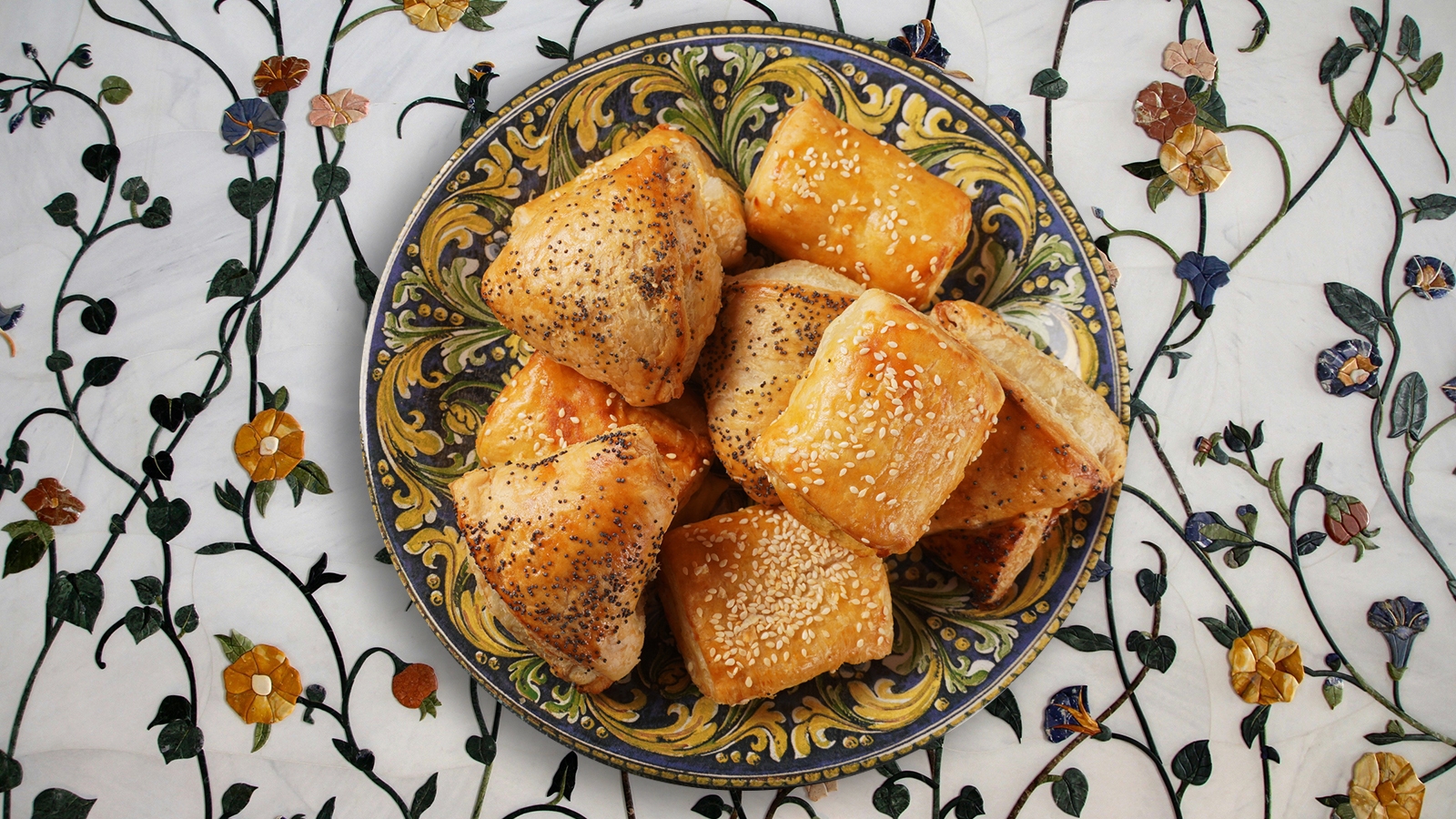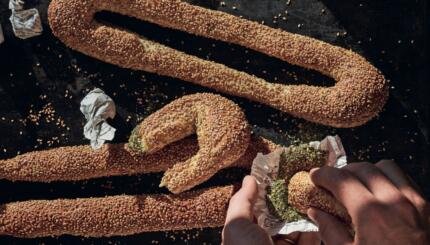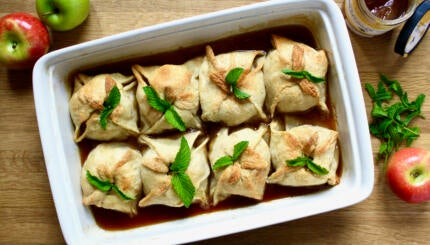The inside cover of my grandmother’s cookbook is inscribed with her handwriting, “Think of me when you cook.” It is a copy of the same spiral-bound book that has been given to all of the women in my family. “The Sephardic Cooks: Comé Con Gana” has somehow made its way from one synagogue in Atlanta to Sephardic communities and families from New Jersey to California. It has all the classic recipes, including a section titled “Main Dish Pastries.” These dishes are the cornerstone of the Sephardic tradition, desayuno.
The word “desayuno” literally translates to “breakfast” in Ladino, the dying Judeo-Spanish language historically spoken by Sephardic Jews. Yet, the meaning extends beyond that one meal. In Sephardic culture, desayuno is a category of foods associated with the large Saturday morning meal that would be served after Shabbat, including egg dishes and savory pastries.
These desayuno foods are some of my favorite things to eat and the ones I most associate with my own family traditions. The blocks of crustless quajado (spinach quiche) that always seemed to be in my childhood freezer, ready to thaw for lunch. The doughy, cheesy spinach boyos my grandmother would have ready for our breakfast every time we traveled to visit her. The pasteles (mini meat pies) my great-aunt taught to a room filled with four generations of cousins at our family reunion last summer. The rice-and-cheese-filled bureka pastries my mom comes over to make with my kids and me.
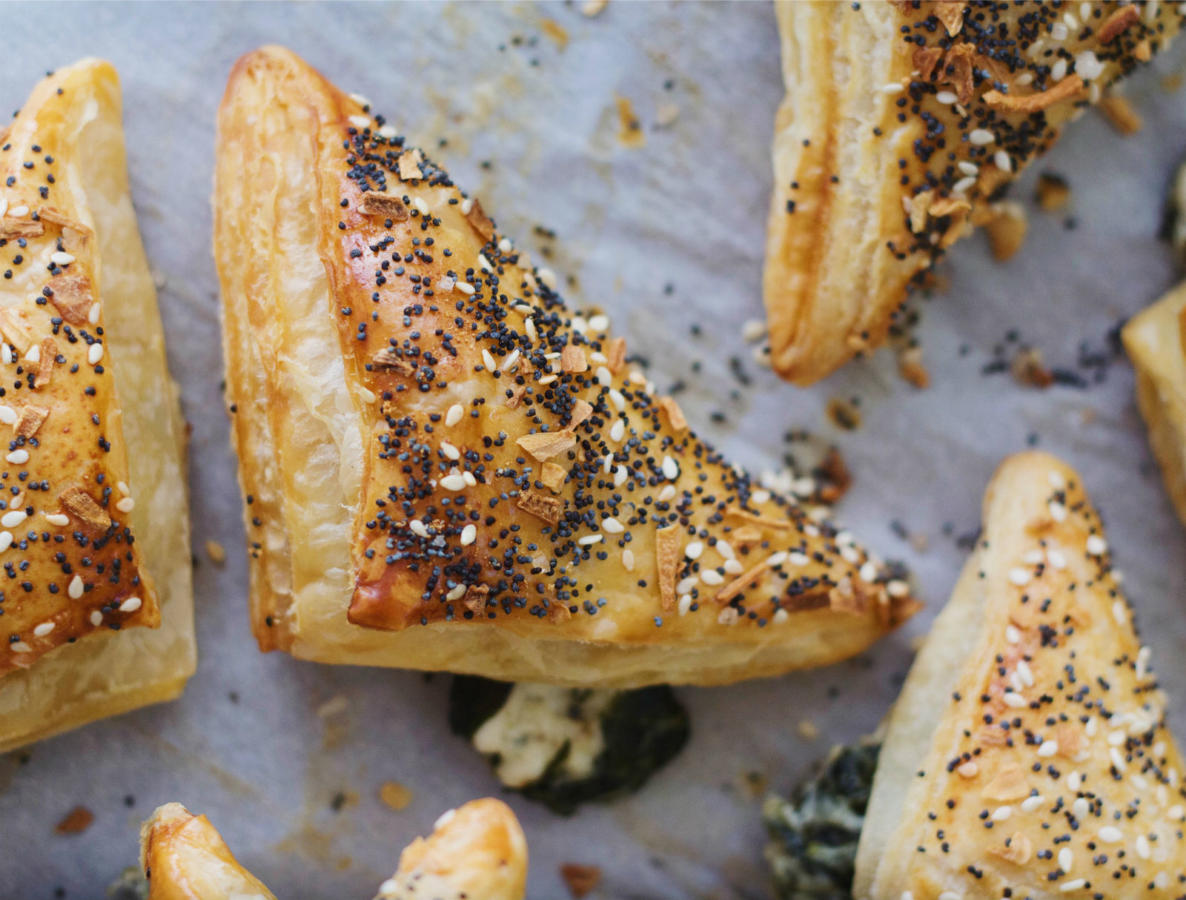
While delicious and crowd-pleasing, these are also some of the most time-consuming recipes to prepare. I picture my great-grandmother standing in a friend’s kitchen as all the ladies of the community work together to knead mounds of dough, mix a vat of filling, fold and crimp sheets and sheets of burekas. Whether this is accurate or just my imagination justifying why it feels intimidating to make these by myself, desayuno pastries do not align well with today’s fast-paced, individual lifestyle. Save for the times my mom comes to bake with us (importantly, bringing a container of prepped filling), making dough and pastry from scratch is not happening in my kitchen.
The Nosher celebrates the traditions and recipes that have brought Jews together for centuries. Donate today to keep The Nosher's stories and recipes accessible to all.
I hope to be a part of the thread that keeps Sephardic traditions alive, yet I do not want to let perfection be the enemy of my intentions. I think my grandmother would agree. While she baked burekas with all of her grandchildren and always had a freezer full of freshly baked rosca (coffee rolls), she was never one to turn down a good shortcut. She developed her own boyo recipe featuring Hungry-Jack biscuit dough as the base and once described to me a full lentil soup recipe, only to end it with, “or you could just buy a can of lentil soup.” She loved when I would call her to share that I had tried a Sephardic recipe, such as cinnamon biscocho cookies or lemon chicken soup. Whether my attempts had been successful or a flop (like my rock-hard biscochos), her smile would be audible through the phone saying, “I’m just so glad you tried.”
As Sephardic culture and traditions fade and assimilate, food provides an important outlet to preserve history and share it with family and friends. More important than getting it right or spending hours in the kitchen is remembering our traditions, trying recipes, talking about or simply eating Sephardic foods, regardless of who made them.
In that spirit, I would like to propose lowering our standards, for the greater good of keeping traditions alive. Consider a desayuno with fewer parts or with a little help from the freezer aisle. Rather than the large spread my ancestors would prepare for days in advance, consider making one thing from scratch (though I won’t tell if you cook zero things). You could make a batch of burekas or a quajado, arguably the easiest of the Sephardic breakfast dishes, or even just prepare a pot of hard-boiled eggs. Supplement with frozen spanakopita, Ta’amti Bourekas or a Trader Joe’s Greek cheese spiral for a full table.
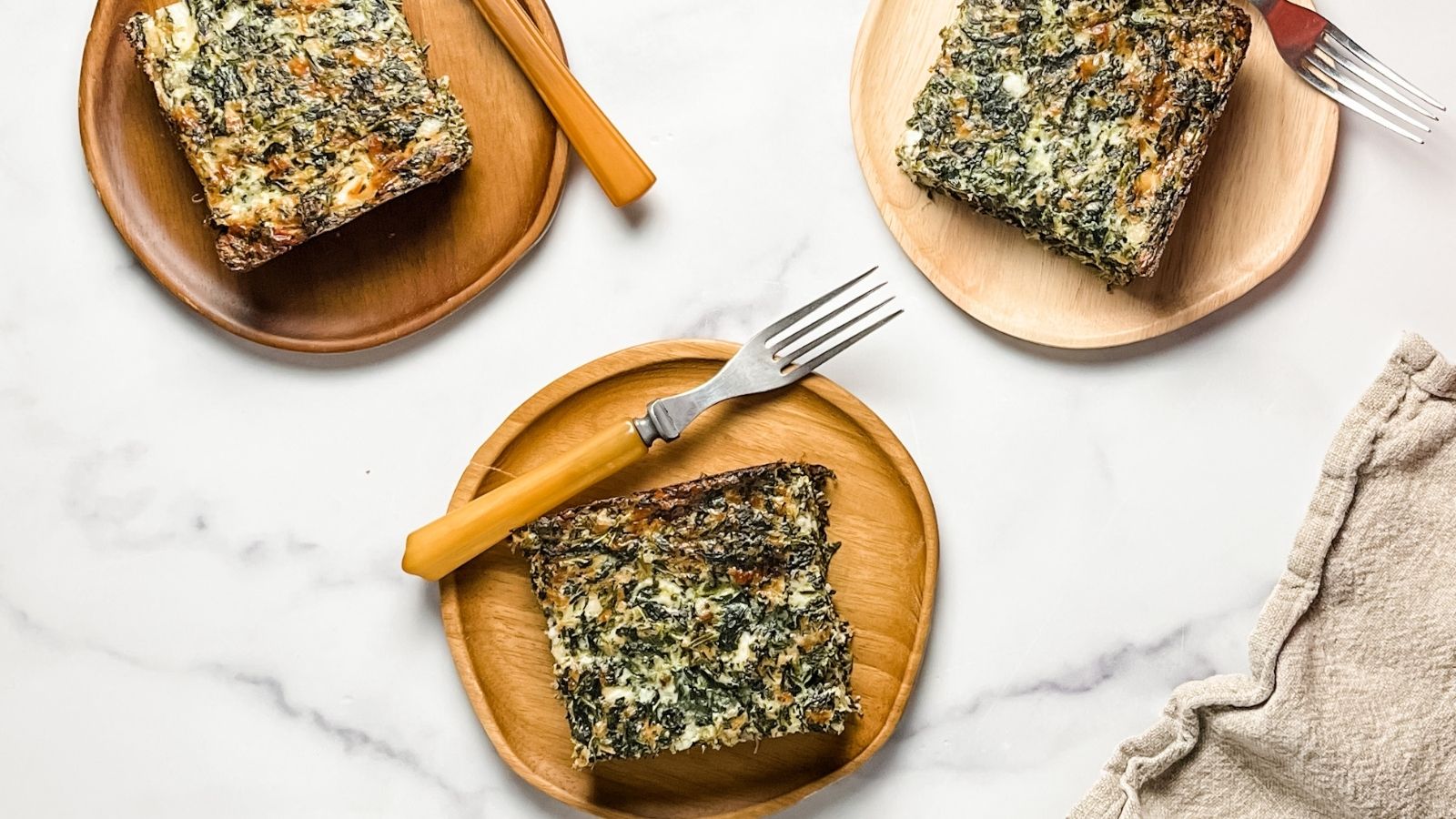
Nothing will taste quite like homemade pastries fresh from the oven and I still aspire to make them (occasionally). Yet, even when I munch a makeshift Sephardic meal, I will be thinking of my grandmother, just as she inscribed in her cookbook. As long as we are sharing food together, talking about Sephardic traditions, remembering meals and people who matter to us, I will call it desayuno. I think my grandmother would be proud.
